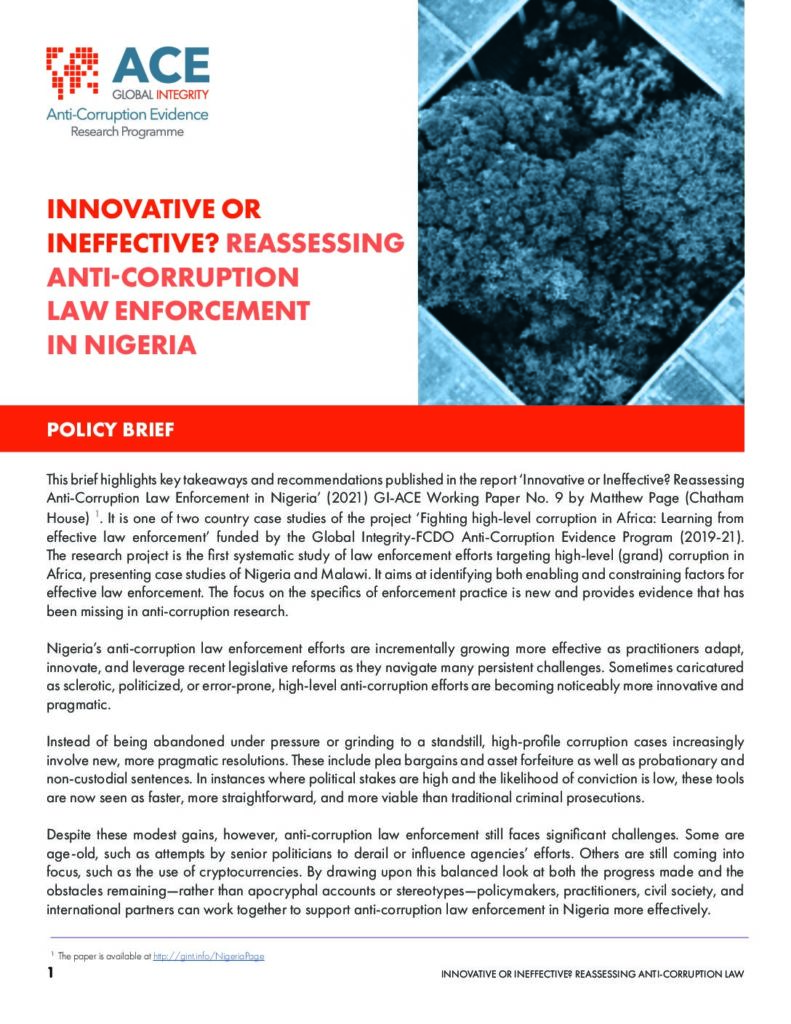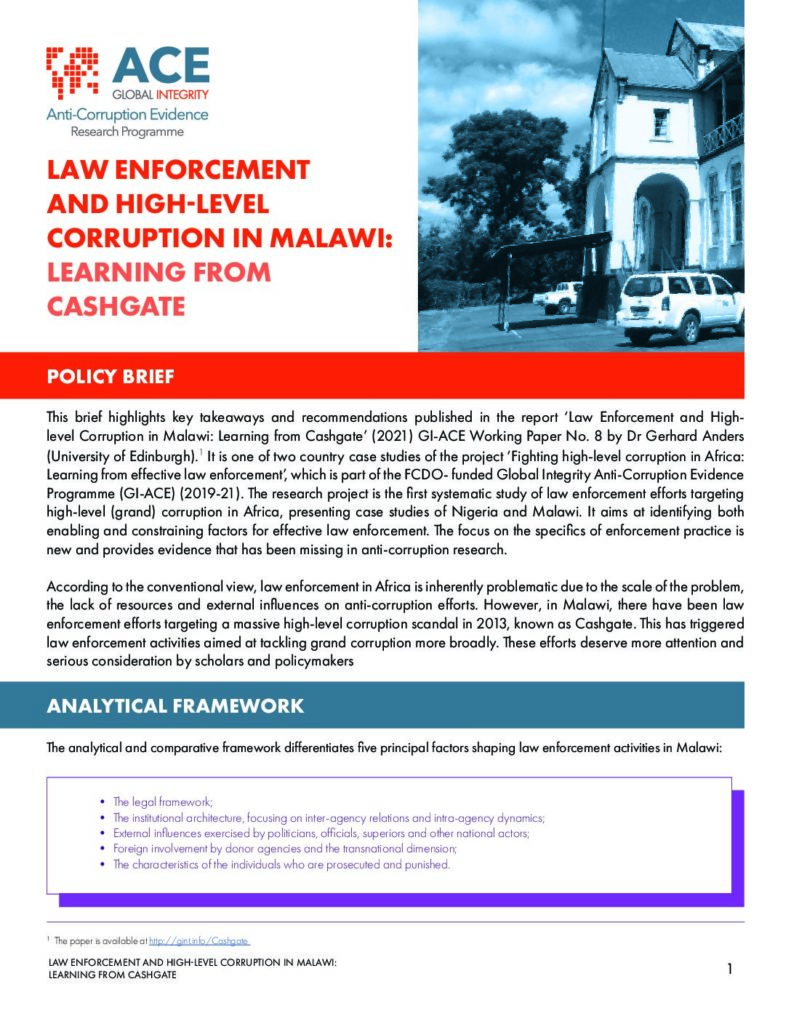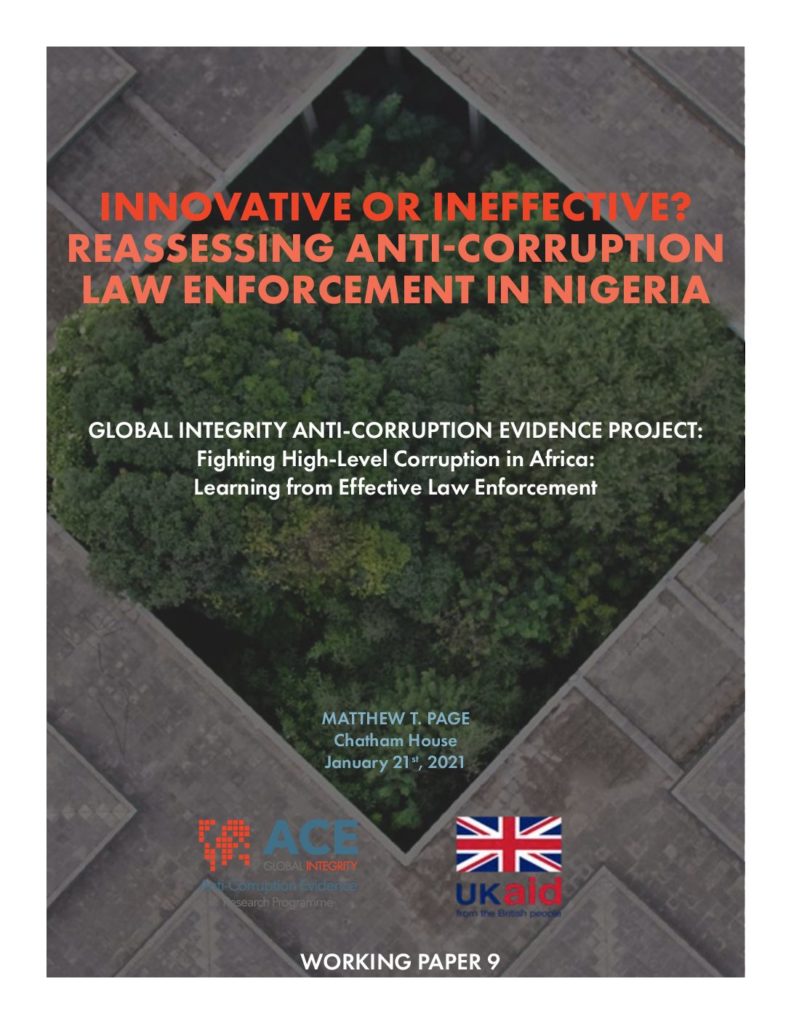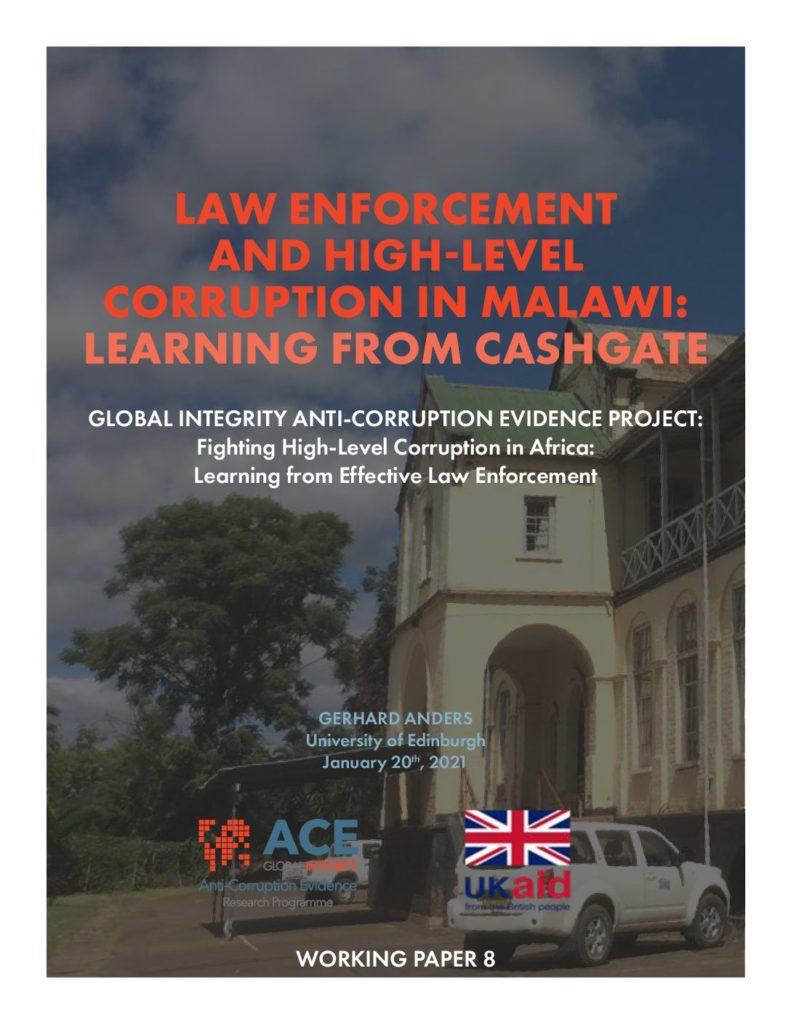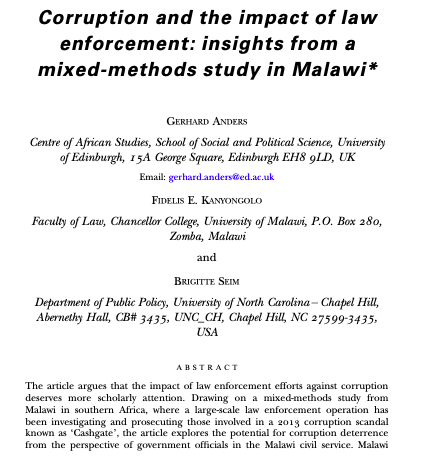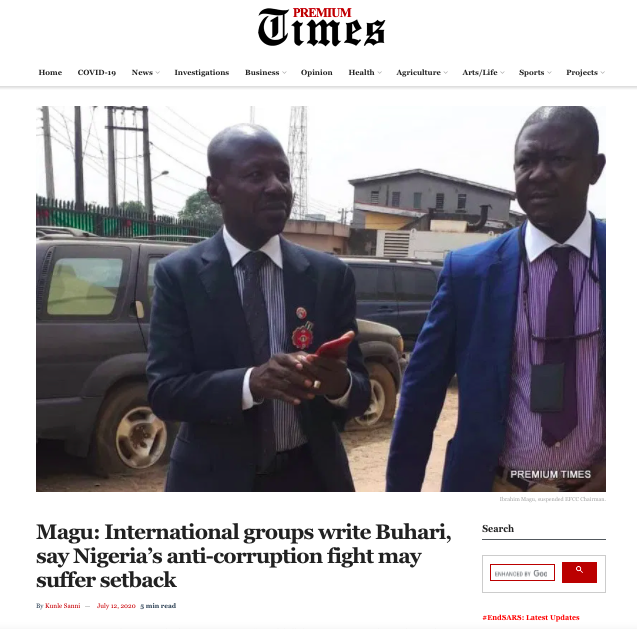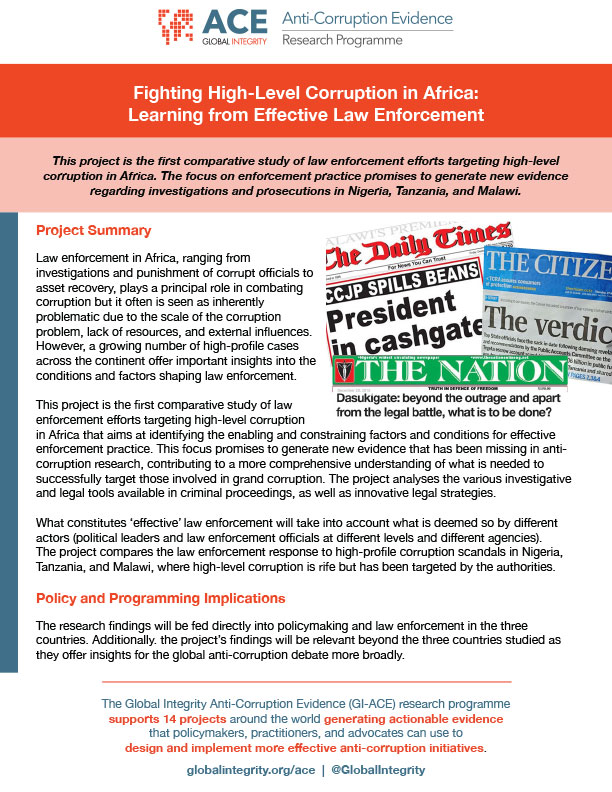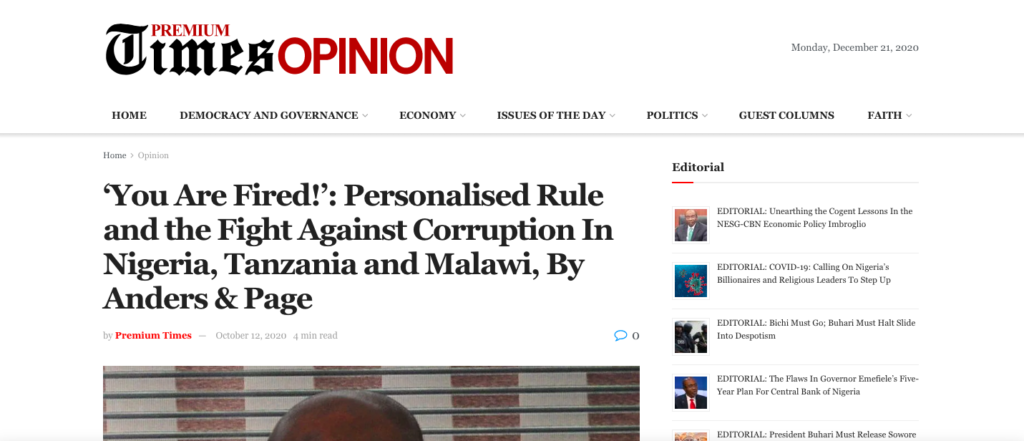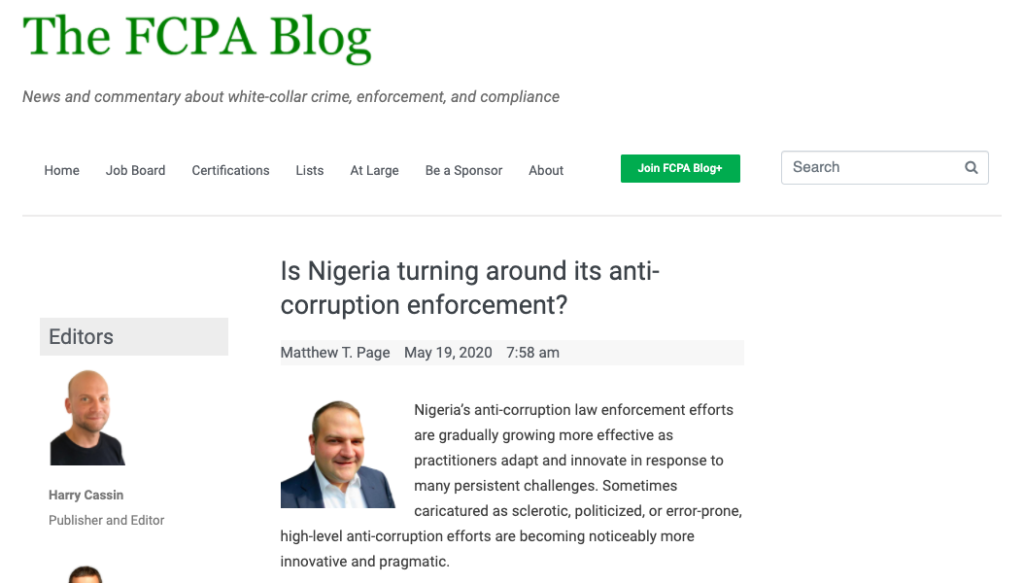Fighting high-level corruption in Africa: Learning from effective law enforcement
This project is the first comparative study of law enforcement efforts targeting high-level corruption in Africa. The focus on enforcement practice promises to generate new evidence regarding investigations and prosecutions in Nigeria, Tanzania, and Malawi.
Click here for the Project One-Pager
To learn more about this project, contact Principal Investigator Gerhard Anders.
Project Summary
Law enforcement in Africa, ranging from investigations and punishment of corrupt officials to asset recovery, plays a principal role in combating corruption but it often is seen as inherently problematic due to the scale of the corruption problem, lack of resources, and external influences. However, a growing number of high-profile cases across the continent offer important insights into the conditions and factors shaping law enforcement.
This project is the first comparative study of law enforcement efforts targeting high-level corruption in Africa that aims at identifying the enabling and constraining factors and conditions for effective enforcement practice. This focus promises to generate new evidence that has been missing in anti-corruption research, contributing to a more comprehensive understanding of what is needed to successfully target those involved in grand corruption. The project analyses the various investigative and legal tools available in criminal proceedings, as well as innovative legal strategies.
What constitutes ‘effectiveʼ law enforcement will take into account what is deemed so by different actors (political leaders and law enforcement officials at different levels and different agencies). The project compares the law enforcement response to high-profile corruption scandals in Nigeria, Tanzania, and Malawi, where high-level corruption is rife but has been targeted by the authorities.
Policy and Programming Implications
The research findings will be fed directly into policymaking and law enforcement in the three countries. Additionally. the projectʼs findings will be relevant beyond the three countries studied as they offer insights for the global anti-corruption debate more broadly.
Research Questions
The analytical and comparative framework differentiates five principal factors shaping law enforcement activities:
- Influence exercised by politicians, officials, superiors, and other national actors aimed at either strengthening or obstructing law enforcement in the context of the countriesʼ political economy /political settlement.
- Foreign involvement by donor agencies and foreign interests.
- The legal framework, including criminal, private, and procedural law, to identify effective and flawed legislation and the ways it is employed by legal actors.
- The institutional architecture, focusing on the capacities of law enforcement agencies including the mandate, organization, resources, and personal qualities and leadership of individuals that are key to criminal prosecution, asset recovery, and civil litigation.
- The individuals who are prosecuted, punished, and have had their assets seized, as well as those suspected to be involved who do not face prosecution. Who are they and where do they come from? What are they accused of? Are they only small fish or are they the main perpetrators?
Methodology
This research requires a qualitative approach due to the sensitive nature of high-level corruption. The researchers will employ a mix of social-scientific and legal methods. They mainly conduct semi-structured interviews with key individuals in government, donor agencies, civil society organizations, and law enforcement agencies. In addition, the team will conduct desk research and analyze the legal framework.
Research Team Members
- Gerhard Anders (Principal Investigator), Senior Lecturer, Centre of African Studies, School of Social and Political Science, University of Edinburgh
- Fortunata Makene (Co-Investigator), Head of Strategic Research and Publications, Economic and Social Research Foundation, Dar es Salaam
- Matthew T. Page (Nigeria expert), Associate Fellow, Chatham House
- Nick Staite (Legal expert), Basel Institute on Governance





